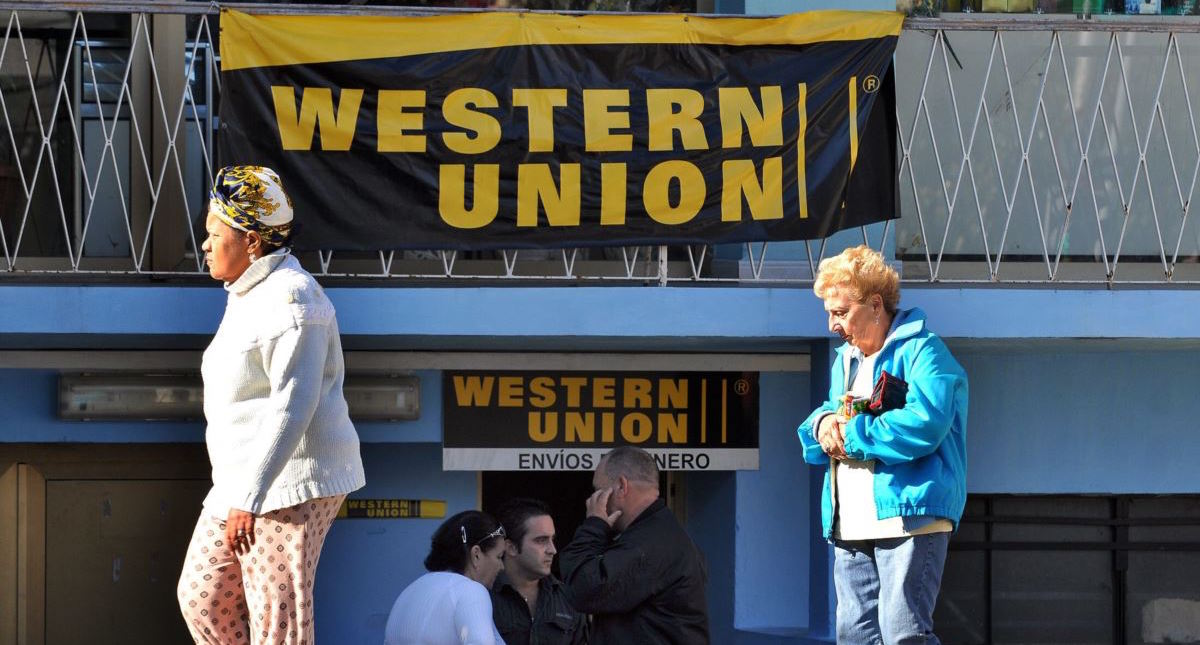When it comes to surviving the suffocating economic situation in Cuba, having relatives residing abroad continues to make a major difference today, drawing a line between those who receive remittances and those who do not.
"In addition to buoying families' domestic finances, remittances have provided Cubans who have decided to move into the private sector with capital," said engineer Orestes Martínez, who, along with his brother, runs a car wash.
But, together with the increase in emigration, they have also contributed "to the exacerbation of social inequality", generated mainly by the economic experiments of the Communist Party, said Human Resources specialist María Eugenia Estrada.
"You cannot think that remittances are a source of salvation for all Cubans, because reality hits you in the face," Estrada explained, mentioning the alarming increase in beggars and people in situation of indigence; people who, apparently, receive no help from family abroad.
"Being able to travel without the need for an exit permit did not mean that all we Cubans could afford a ticket. Nor was it any guarantee that all families would have a family member based abroad looking out for everyone", said Gabriel Alejandro Román, a 30-year-old youth who promotes nighttime entertainment at private venues.
The sending of remittances to Cuba rose during the Obama Administration, which lifted the restrictions in this regard imposed by the (George W.) Bush Administration.
Most of the money and items sent by relatives to Cubans on the island come from the US. The consulting firm The Havana Consulting Group estimated that over 3.5 billion dollars in remittances are sent to the island annually, while a more recent report from the same platform indicated that in 2018 remittances totaled some 6.6 billion dollars.
"Those are very serious numbers, but none of us, 'those without remittances', benefit from them," said Luis Cárdenas Lugo, a retired worker at an old cannery in the town of Cerro.
"My retirement salary is 350 pesos. How many dollars or Euros can I buy with that? Or, worse, what the hell can be bought with what results from that exchange?" said Cárdenas Lugo, who summed up the situation of a large portion of the Cuban population and, within it, the sectors most affected during the direst periods of the country's economic crisis.
El Parón
Despite the differences between those who receive them and those who never have, the money that reaches Cuba in the form of remittances generates jobs in the private sector, plays a significant role on the invisible market, and constitutes relief for many families.
Cuban exiles have convoked a parón, a suspension of remittances, with the declared objective of causing the Cuban government to collapse, along with an appeal for the interruption in cell phone account payments on the island too, starting January 1 of next year, but many Cubans on remain ignorant of the issue, or skeptical.
"I really thought that the sending of remittances had been solved by the measures taken by the American government," said Juan Manuel Falcón, owner of a small pottery workshop. Falcon, who had received no news about El Parón, has two nephews and one of his three daughters in the United States, but none of them have spoken to him about it.
"I suppose that the main people affected will be those of us who receive remittances, because those Cubans who don’t have always been worse off; I don't think that this suspension will make any difference to them."
In October the US Treasury Department’s Office of Foreign Assets Control (OFAC) limited money transfers to the island to $1,000 each quarter.
The OFAC then stated that the recipient of the money could not be, in any case, an official of the Government of Cuba, a member of the Communist Party, or a close relative thereto.
Months earlier the Deputy Assistant Secretary for Cuba and Venezuela, Carrie Filipetti, had explained that the $1,000 cap was set because Washington considered that figure "sufficient" to allow Cubans to have "what they needed" without allowing the regime "to appropriate those resources."
"Sometimes I don't like the tone and words used by the exiles when referring to us here, inside the pressure cooker," said handball coach Felix Benavides.
"I think that everyone has an absolute right to decide what to do with their money, but not to use an excuse that history itself has shown does not work," added Benavides, who also does not receive remittances, but works as a cook at a pizzeria opened by its owners thanks to the capital sent by relatives in the United States.
"If anyone suffers, if this parón works like they're saying, it will be ordinary Cubans; those who, like me, are honest and, in an indirect way, benefit from remittances."
According to Tamara Núñez Díaz, a resident of a neighborhood in Playa, El Parón is "a simple whim of those who are promoting it, because we Cubans have been through everything, including a Special Period, and Cuba's rulers were unfazed, and kept right on living the good life. "
Her brother Abelardo, however, disagrees. "The remittances, plus the excessive rates for each of the services provided by ETECSA, buttress the government, which never comes up with a measure to benefit and support the people. El Parón could be a warning to the Cuban government, for it to open up to the world and truly prosperous economies," he said.
Abelardo and Tamara's mother, based in Boston for five years, decided that she would send the remittance, as usual, and place credit on their phone, "because that’s the only way to always stay in touch with us and my grandmother."
"Mom is more centered, preferring to think about her children first, and politics second," Tamara explained.
